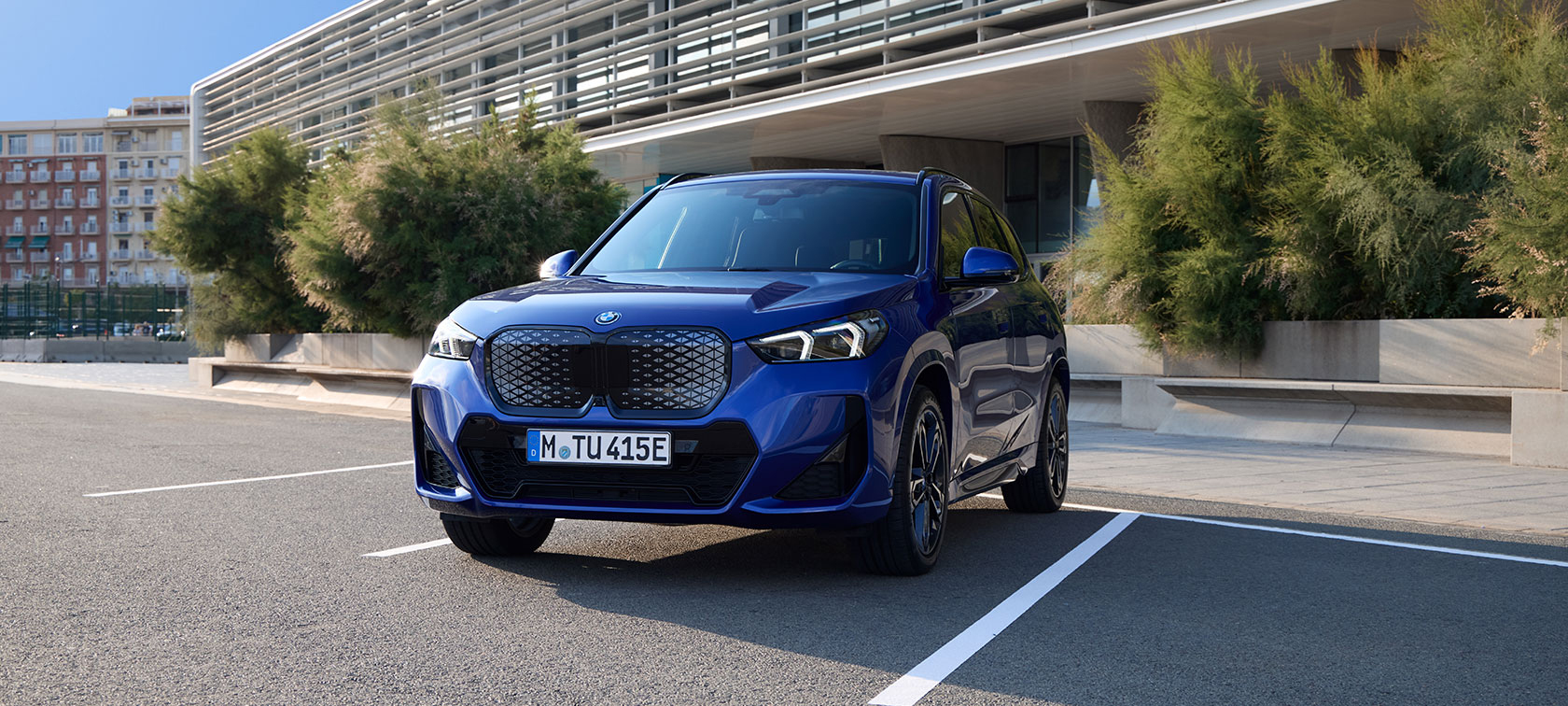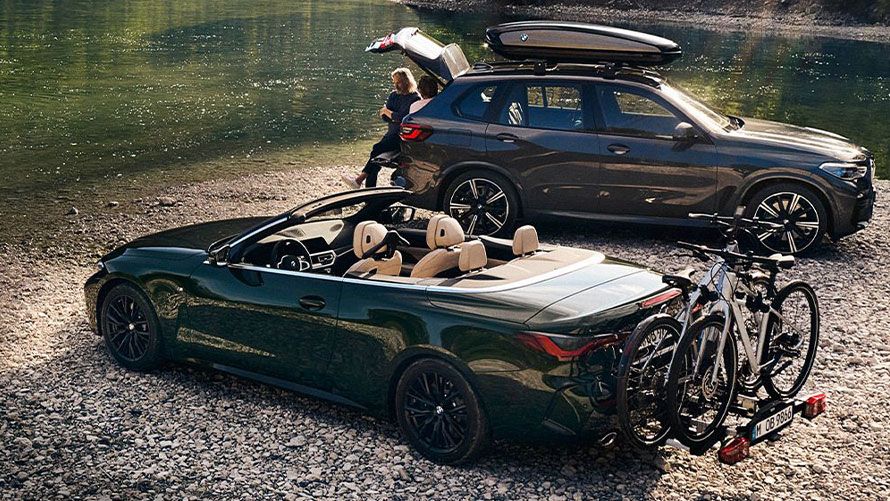Our tool for managing your permission to our use of cookies is temporarily offline. Therefore some functionality is missing.

THE iX1
THE BMW iX1: ENGINE & TECHNICAL DATA.
The most important facts and figures of the BMW iX1 at a glance:
- Power consumption and electric range
- Performance data such as kW/hp, torque and acceleration
- Weight, dimensions, wheel and tyre sizes
THE BMW iX1: TECHNICAL DATA.
- BMW iX1 eDrive20
No search result found. Please try another input

| Powertrain type | Electric |
|---|---|
| Power in kW (hp) | 150 (204) [5] |
| Torque in Nm | 250 |
| Transmission | 1-speed, automatic |
| Drivetrain | Front-wheel drive |
| (Nominal) power/30 minutes power in kW (hp) | 150 (204)/68 (92) |
|---|---|
| (Nominal) torque in Nm | 250 |
| Acceleration 0–100 km/h in s | 8.6 |
|---|---|
| Maximum speed in km/h | 170 |
| Energy consumption, combined WLTP in kWh/100 km | 17.2-15.4 |
|---|---|
| Electric range, WLTP in km [2] | 430-474 |
| Battery capacity in kWh | 64.8 |
|---|---|
| Maximum charging power AC/DC in kW | 22/130 |
| Charging time DC 10–80% in min | 29 |
| Added range after 10 minutes of high-power charging in km | up to 120 |
| Charging time AC 0–100% in h | 3.75 |
| Length/width/height in mm | 4500/1845/1616 |
|---|---|
| Wheelbase in mm | 2692 |
| Curb weight in kg [4] | 1940 |
| Luggage capacity in l | 490-1495 |
| Optionally delivered with support for trailer load, braked, up to 12%/towbar download in kg | 750/75 |
Power consumption and range.
BMW iX1 eDrive20:
Power consumption in kWh/100 km (combined, WLTP): 17.2–16.7
Electric range in km (WLTP): 430–474
The figures for performance, consumption and CO2 emissions refer to vehicles with standard transmission.
[1] Official data for fuel consumption, CO2 emissions, power consumption and electric range was determined in accordance with the prescribed measuring procedure and corresponds to European Regulation (EC) 715/2007 in the applicable version. For ranges, data determined as per WLTP takes into account any optional equipment (available on the German market in this case). For vehicles that have been newly type approved since 1 January 2021, only the official data according to WLTP exists. In addition, NEDC values are deleted from the certificates of conformity as of 1 January 2023 by EC regulation 2022/195.
For more information about NEDC and WLTP measuring procedures visit www.bmw.com/wltp
Further information about fuel consumption and official model-specific CO2 emissions of new passenger cars can be found in the "Guideline for fuel consumption, CO2 emissions and electric power consumption for new passenger cars", available free of charge at all points of sale, at the Deutsche Automobil Treuhand GmbH (DAT), Hellmuth-Hirth-Str. 1, 73760 Ostfildern-Scharnhausen, Germany, and under https://www.dat.de/co2/.
[2] Range depends on various factors, in particular: individual driving style, route characteristics, outside temperature, heating/air conditioning, pre-conditioning.
[3] The charging performance depends on the state of charge, ambient temperature, individual driving profile and use of auxiliary consumers. The ranges shown are based on the WLTP best case. The charging times apply to ambient temperatures of 23 degrees Celsius after a preceding drive and may differ depending on the usage behaviour.
[4] The EC unladen weight refers to a vehicle with standard equipment and does not include any optional extras. The unladen weight includes a 90% full tank and a driver weight of 75 kg. Optional equipment may affect the weight of the vehicle, the payload and the top speed if the selected equipment has an impact on the vehicle's aerodynamics.
[5] Temporary uprating <10 seconds in excess of specified nominal value
